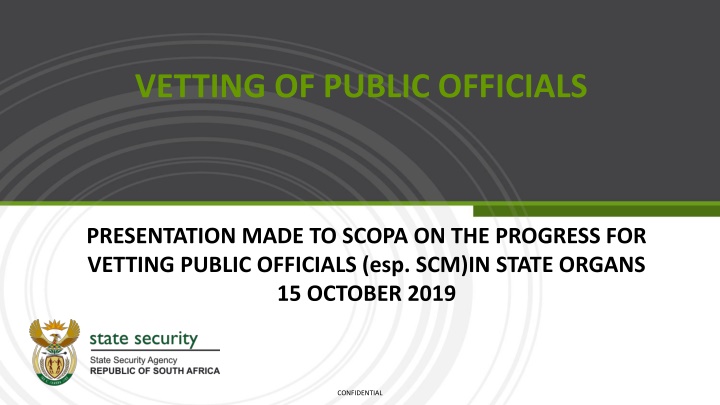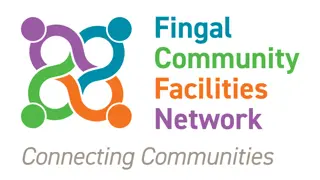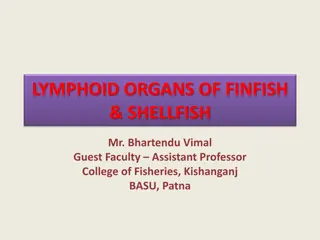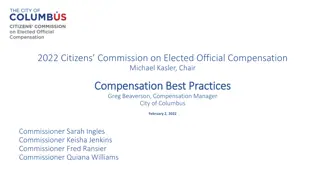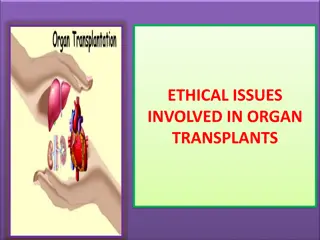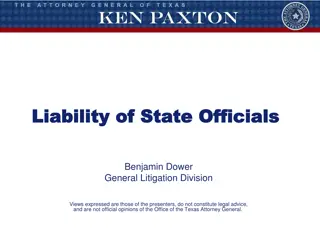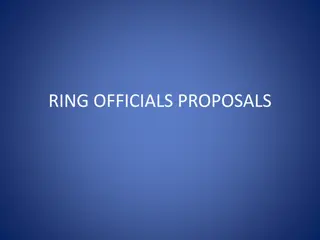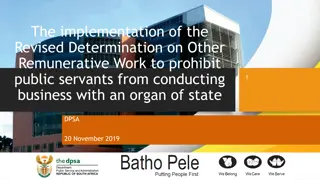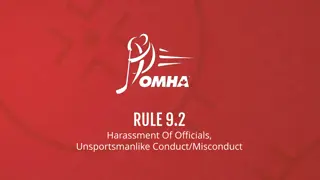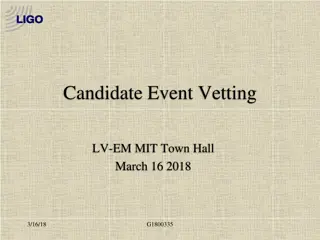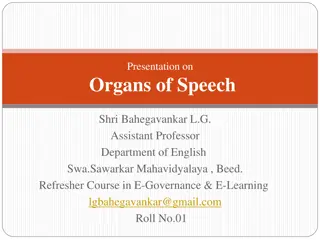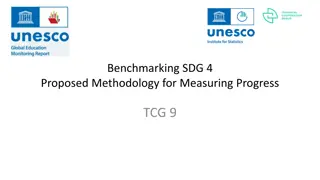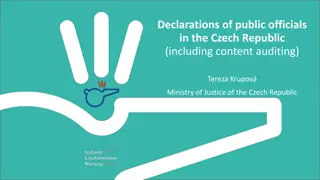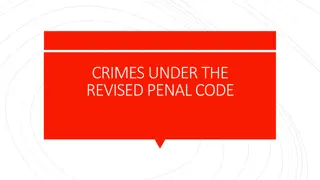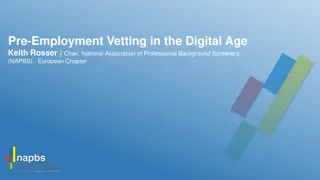Progress on Vetting Public Officials in State Organs Presentation
Cabinet Memorandum 1 of 2006 introduced a National Vetting Strategy in South Africa to enhance government vetting capacity. The presentation to SCOPA on October 15, 2019, highlighted the status of achievements, causes of backlog, challenges, interventions, and recommendations in Supply Chain Management (SCM) vetting. The project initiated in February 2014 to vet SCM personnel addressed corruption concerns but fell short. The emphasis now is on vetting decision-makers and all supply chain personnel to combat corruption effectively.
Download Presentation

Please find below an Image/Link to download the presentation.
The content on the website is provided AS IS for your information and personal use only. It may not be sold, licensed, or shared on other websites without obtaining consent from the author.If you encounter any issues during the download, it is possible that the publisher has removed the file from their server.
You are allowed to download the files provided on this website for personal or commercial use, subject to the condition that they are used lawfully. All files are the property of their respective owners.
The content on the website is provided AS IS for your information and personal use only. It may not be sold, licensed, or shared on other websites without obtaining consent from the author.
E N D
Presentation Transcript
VETTING OF PUBLIC OFFICIALS PRESENTATION MADE TO SCOPA ON THE PROGRESS FOR VETTING PUBLIC OFFICIALS (esp. SCM)IN STATE ORGANS 15 OCTOBER 2019 CONFIDENTIAL
TABLE OF CONTENTS 1. INTRODUCTION: CABINET-MEMO 2006 2. BACKGROUND: SUPPLY CHAIN MANAGEMENT (SCM) VETTING 3. CAUSES OF BACKLOG 4. CHALLENGES IN THE SCM VETTING 5. INTERVENTIONS TO ELIMINATING BACKLOG 6. RECOMMENDATIONS Page 2 CONFIDENTIAL CONFIDENTIAL
INTRODUCTION: CAB-MEMO 2006 Cabinet Memorandum 1 of 2006: Introduction of a National Vetting Strategy for South Africa to enhance Government Vetting Capacity on National, Provincial and Local Government level, Parastatals and other Statutory Organs of State has reference. The Cabinet in 2006 approved the National Vetting Strategy with the following objectives: OBJECTIVES STATUS ON ACHIEVEMENTS Establishment of a Chief Directorate External Vetting within the then National Intelligence Agency Achieved Capacitating all organs of state with Personnel Suitability Checks (PSC) Not achieved Establishment of Vetting Fieldwork Units (VFU) at 17 identified organs of state 23 VFUs established Roll-out the Security Vetting Information System (SVIS) to organs of state with Vetting Fieldwork Units including the SAPS and SANDF To certain identified departments Make amendments to the National Strategic Intelligence Act of 1994 for the establishment of VFUs at organs of state Achieved Establishment of a National Intelligence Agency Fingerprint Unit at the SAPS Criminal Record Centre (CRC) Not Achieved Page 3 CONFIDENTIAL CONFIDENTIAL
BACKGROUND: SCM VETTING PROJECT SONA, February 2012, the President of the Republic of South Africa, Honourable JG ZUMA, and Re-iteration by the then Minister of Intelligence, Honourable Dr SC CWELE, Minister of Finance, Honourable Mr P Gordhan and the Auditor General (AG) Instruction to all public servant within Supply Chain Management (SCM) must be vetted, as indicative of government commitment to fight , corruption Project on the Vetting of Supply Chain Management (SCM) personnel, commenced in February 2014. The project only managed to achieve security clearances to 48% of the submitted requests. However, as corruption continued, it was then realised that vetting of SCM Members did not yield the required results in eliminating corruption. Therefore the overall value chain needs to be reviewed. (i.e. People within line functions (i.e. decision makers) and over all supply chain personnel) are to be vetted New paradigm as an approach to reducing high level of corruption Page 4 CONFIDENTIAL CONFIDENTIAL
REFLECTING THE DECISION VALUE CHAIN Procurement driven by the strategic objectives of the departments. Key Role players: Line functional personnel. (i.e. Boards, Directors, Executives) Identify the Need for Procuring Line functional personnel, (Managers) and SCM personnel, responsible for the drafting of the needed specification of items to be procured. Development of the required specification for the items to be procured Request for authorization/approval for the procurement of the identified goods/service Role Players: Bid Adjudication Committees Execution of Procurement Governance processes SCM activating the procurement process, through relevant procurement processes Conducting actual procurement Page 5 CONFIDENTIAL CONFIDENTIAL
CAUSES OF BACKLOG Lack of Human Capacity Lack of funding to recruit additional and required human capacity and other resources. Dependency on other Departments with regards to Databases (SAPS CRC, SARS, etc). Non-compliance and cooperation by subjects and references Over-classification of clearance levels by Security Managers Non-inclusion of required documents by subject Page 6 CONFIDENTIAL CONFIDENTIAL
CHALLENGES IN THE SCM PROJECT Vetting not a funded function. Poor attendance to Security Managers Forums (SMF) by Security Managers Non compliance by Security Managers to SSA requirements for vetting Lack of knowledge by government employees and those of State Owned Entities (SoE) regarding why they need to be vetted Government employees and those of SoE s, including most Security Managers do not understand the process of vetting Resistance by Government employee and those of SoE to undergo vetting. Interference of Unions Lack of capacity and resources from SSA Lack of compliance monitoring by the Executives from external departments (i.e. ESKOM, ACSA, Departments and Boards) Lack of regulations to enforce compliance Page 7 CONFIDENTIAL CONFIDENTIAL
INTERVENTIONS TO ELIMINATE BACKLOG ACTIVITIES SSA/SAPS engagement on the implement of the 2006 Cabinet Memo 1, regarding access to SAPS CRC Institute MOUs with data source owners (i.e. DHA, SAPS) Approval and implementation of the Integrated National Vetting Strategy (INVS) Fast tracking of the E-vetting solution ESTIMATED DATES To be defined 31 March 2020 30 September 2020 (pilot phase) Batch Prioritization of 50 per Department on the e-Vetting solution, as part of the pilot Collaborate with other organs of state (i.e. National School of Government) to assist in conducting awareness training, and refresher courses Review Minimum Information Security Standards (MISS) and fast track the approval of vetting regulations 30 September 2020 30 September 2020 Page 8 CONFIDENTIAL CONFIDENTIAL
RECOMMENDATIONS SCOPA to note the followings: Implementation of the CABINET Memo 1 of 2006, through the facilitation of the provisioning of access to required databases, i.e. (SAPS: CRC) Ensure ownership and accountability by the Accounting Officers (Ministers and DG s) to vetting requirements and compliance monitoring (through Performance Contracts) Provisioning of funding for conducting Vetting Activities, including the implementation of ICT solution to automating Vetting processes. MoUs between Intelligence Academy to ensure that Security Awareness is one of the compulsory training modules MISS and Vetting regulations are to be approved to ensure compliance Vetting to be paid for by clients/ departments Change in employment conditions, to reflect vetting as compulsory Confidential Page 9 Engagemnet with Unions to give clarity on Vetting mandate
THANK YOU CONFIDENTIAL Page 10
